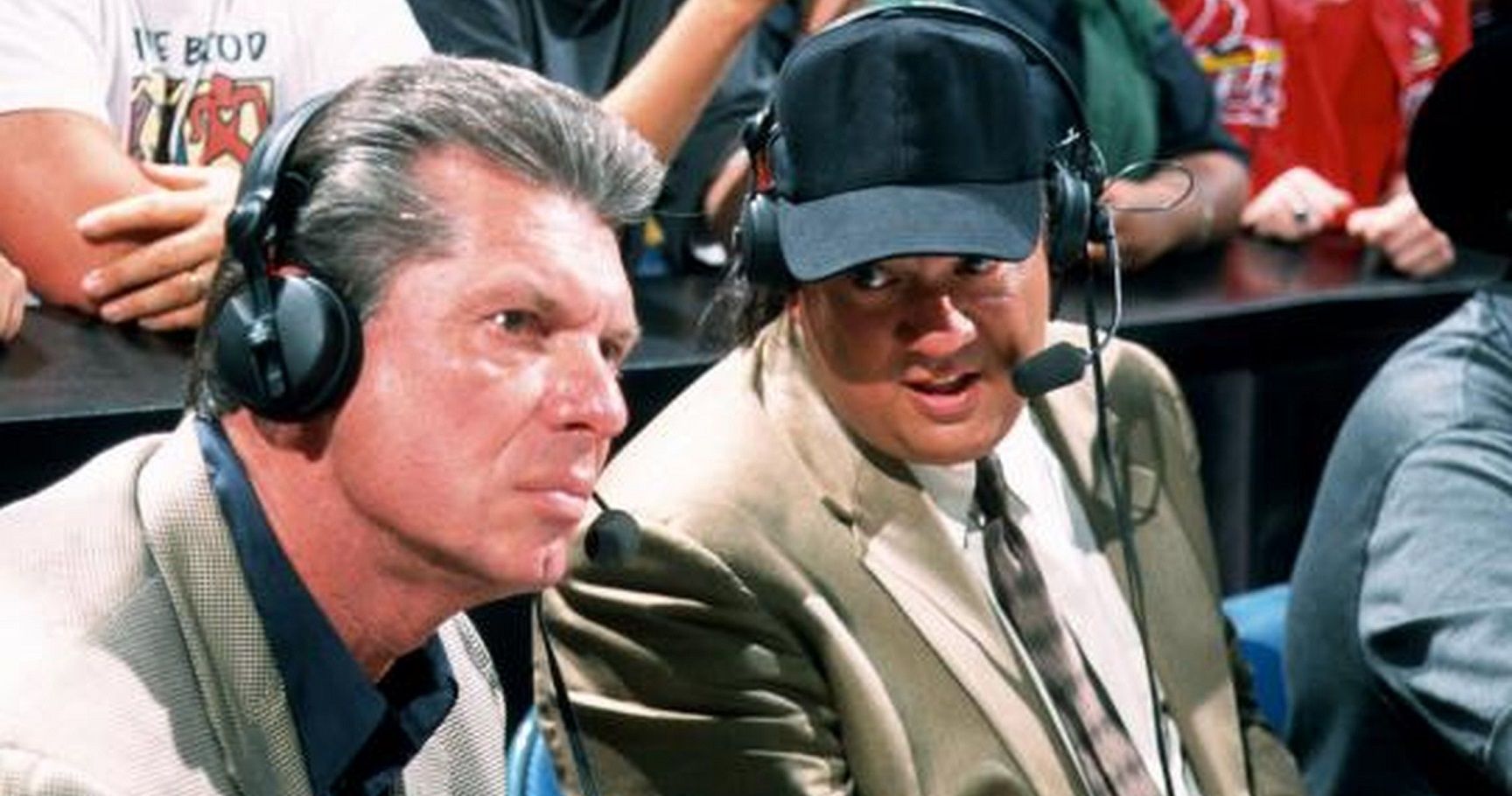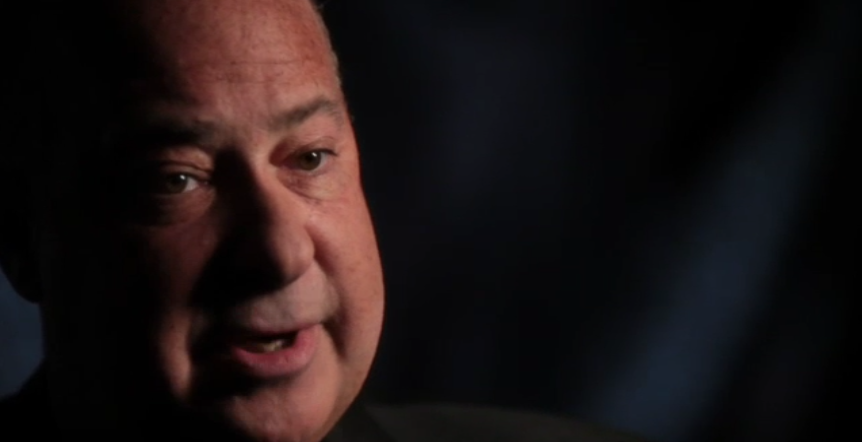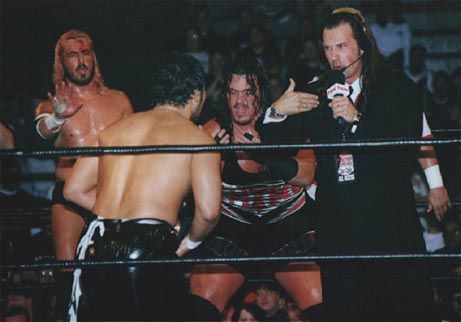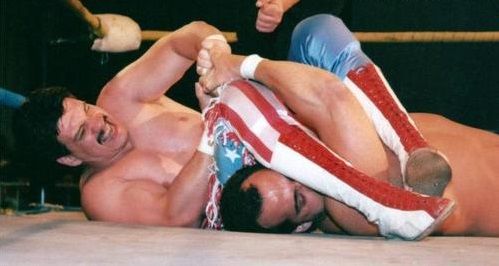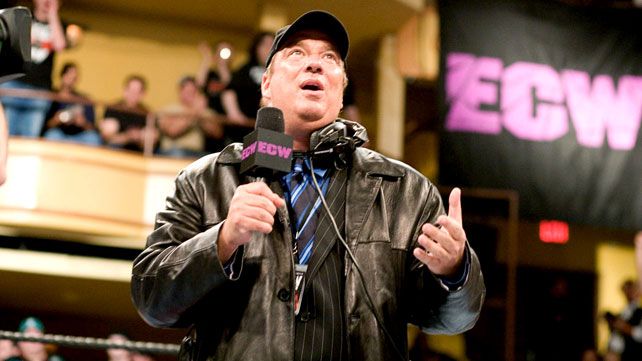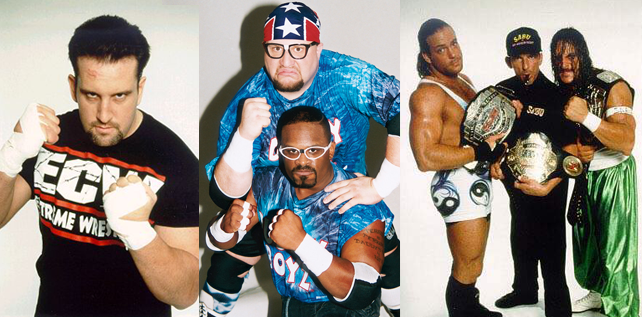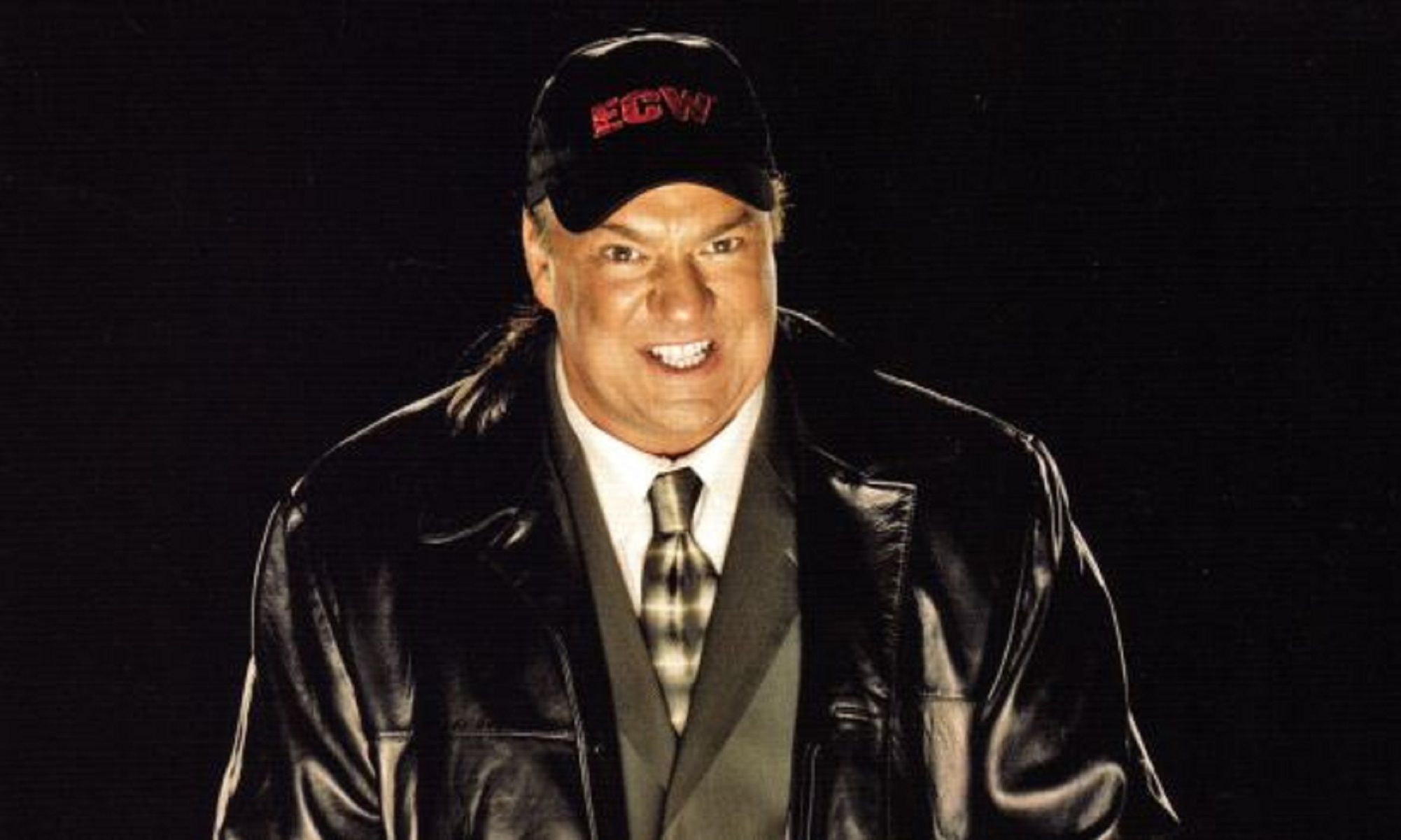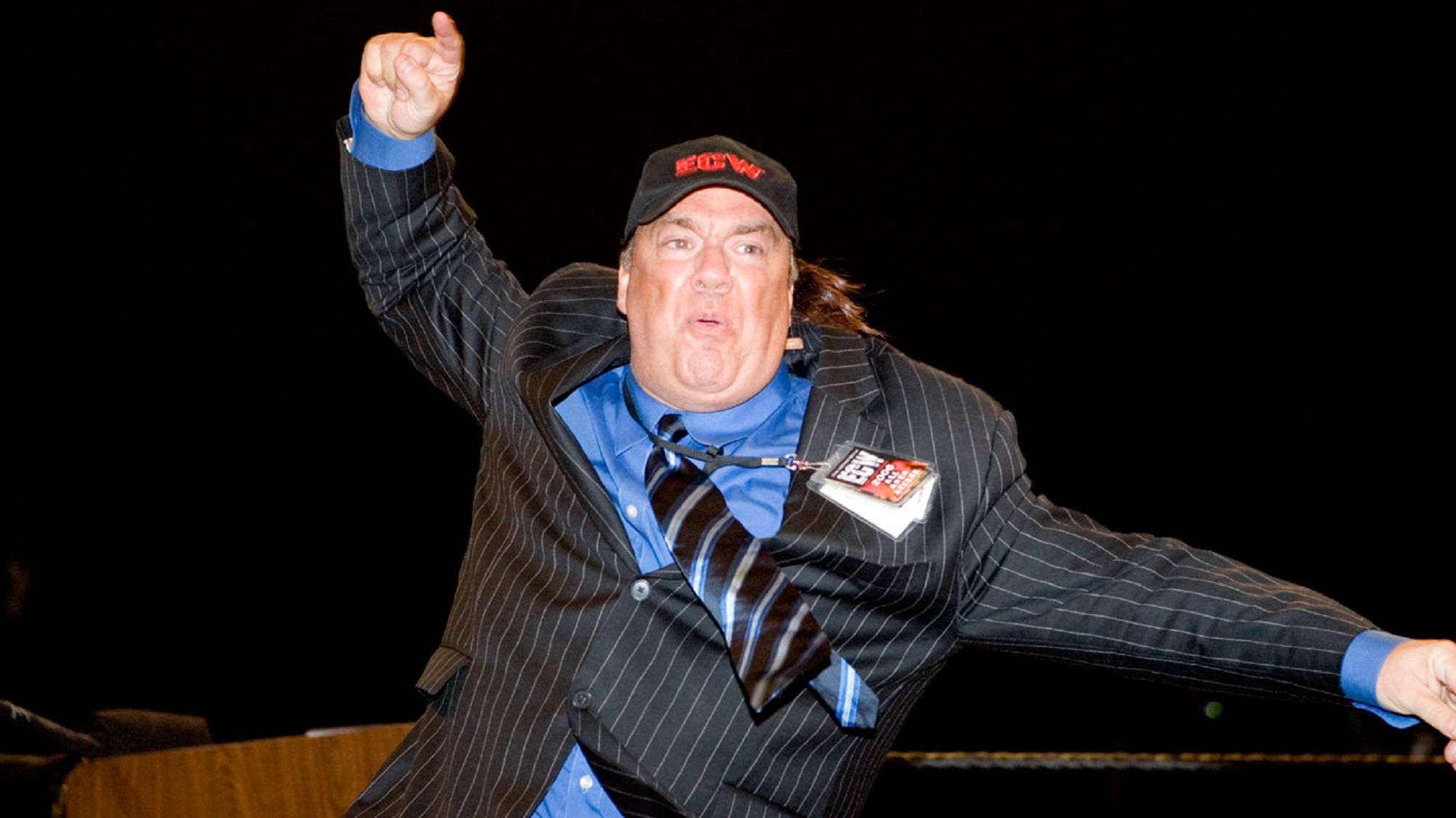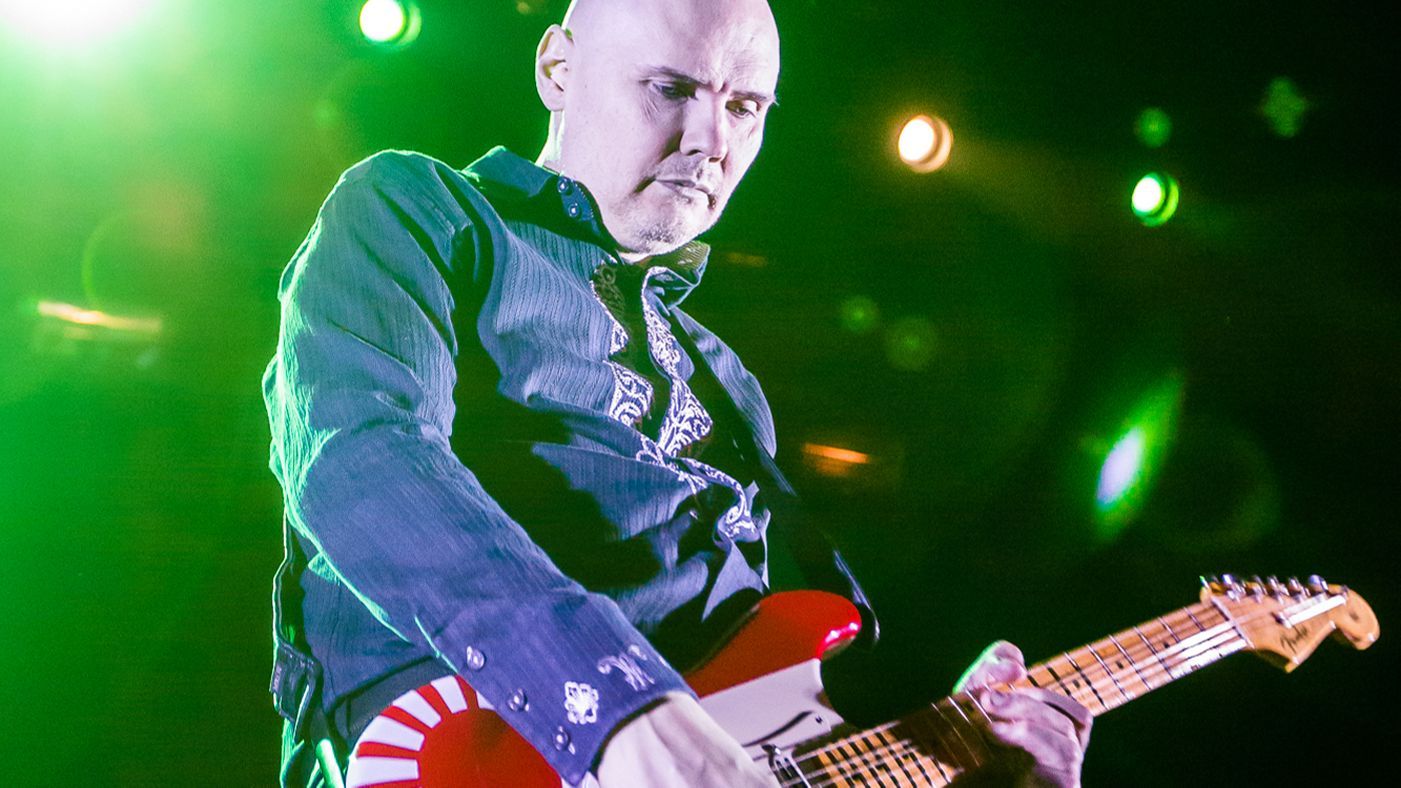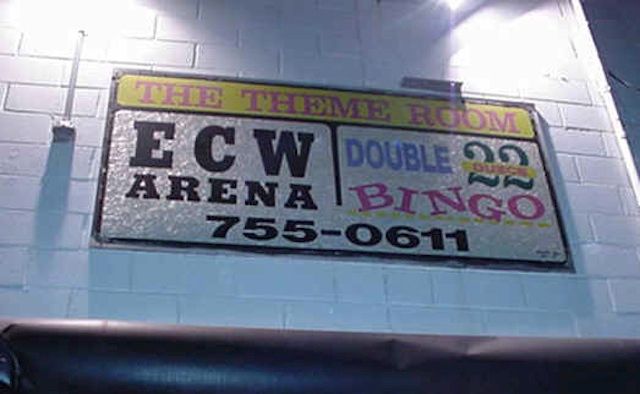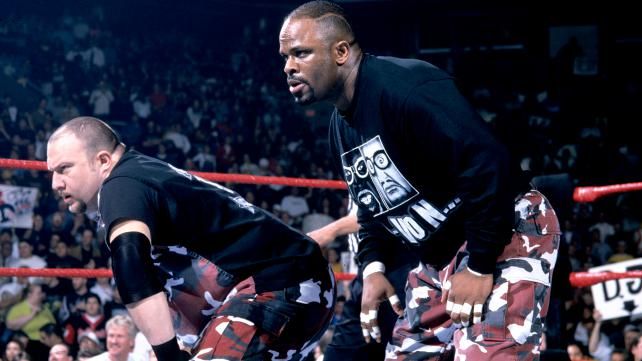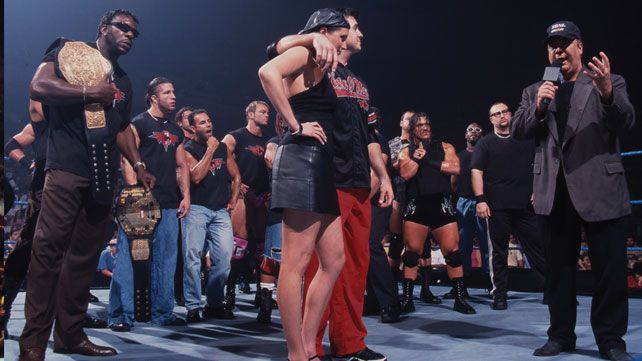There are very few things in life that truly last a lifetime. In the professional wrestling world, the letters ECW have been echoed in arenas across the world ever since the company closed its doors in 2001.
Extreme Championship Wrestling was one of its kind. When the WWE and WCW were competing for television ratings with wrestlers like Hulk Hogan, Kevin Nash, Shawn Michaels and Bret Hart, ECW was truly revolutionizing the business.
Whether it was due to the extreme (no pun intended) violence, skilled in ring competitors, an introduction to Mexican and Japanese talents or mature content, Paul Heyman was doing his best to be completely different from the competition - and for a good five year span, he excelled in that area.
However, Heyman - ECW’s biggest proponent and advocate - was also the company’s main downfall and detriment as well.
While the ECW product was thriving in their on screen product, ticket sales, attendance and merchandise sales, their financial matters were crumbling day by day. Due to going too far in debt, wrestlers weren't regularly paid, advertisements were low, the television show was inconsistent and, eventually, ECW was forced to seize operations.
The legacy of ECW will always be apparent. Not only did the company create its own niche in the wrestling market, but it also made their bigger brothers change the ways they did business as well. While Heyman was a huge part of that, there were still many things he could have done to keep ECW alive. Here are 12 different things that could have been done to save ECW back in 2001.
11 12. Never Firing Tod Gordon
When Tod Gordon was in charge of the money and Paul Heyman was in charge of the booking, ECW was in the best position, financially, that it ever was during the tenure of the company. However, in 1997, Heyman abruptly fired Gordon from his duties.
While there are many rumors as to why this happened, it can be agreed that Gordon worked as an intermediate of sorts between ECW talent and WCW. With Eric Bischoff looking for new talent to showcase during the Monday Night Wars, Gordon was used to secretly talk about contract information to the wrestlers he wanted, while also taking a cut of the pay. At the time, there were even rumors that an ECW invasion would happen on WCW television.
There were probably two reasons why Heyman was upset. One was because, after losing wrestlers like Chris Jericho, Eddie Guerrero and Rey Mysterio, he didn't want to lose talent like Rob Van Dam and Sabu. On top of that, Heyman had a working agreement with Vince McMahon, and that could have hurt their relationship. Either way, if Gordon remained involved on the financial side of things, ECW could have lasted longer.
10 11. Had A Veteran Come In Against The Network
When TNN proved to be a hindrance, not a help, to the ECW product, Paul Heyman used it to his advantage. Led by Cyrus and his stable of wrestlers, the group represented what was called "The Network." Often times, Cyrus and his posse were used to berate ECW loyalists while displaying a more toned down and boring wrestling style to further the heat on the group.
Because this storyline was done in the company's dying days, there wasn't much to do. However, instead of having random wrestlers fight against them (as Heyman did), hiring a true ECW original who embodied the company like Terry Funk as a figurehead could have added more heat to the feud.
Siding with mainstays like Tommy Dreamer and The Sandman, Funk could have brought more eyes to ECW. Not only was Funk a true veteran of the company, but the audience's love for the Hall of Famer would have helped as well.
9 10. Less Hardcore Wrestling
When the promotion changed its acronym from Eastern Championship Wrestling to Extreme Championship Wrestling, Paul Heyman and company lived up to the extreme title - and then some.
Throughout ECW’s heyday, flaming tables, head crushing steel chair shots and ring ropes replaced by barbed wire were just some of the things seen on their shows. It’s obvious bloodshed was wanted by the fanbase; however, at the turn of the century, it seemed like the hardcore style was starting to die down.
By Heyman’s own admission, ECW was going to feature more mat based and arial wrestling at the forefront of the company, and the hardcore spots would be less frequented, which would make them more special. Because fans revolted the ECW TNN show because it was far from the original product, Heyman would've been smart to lessen the violence, as it would have translated to television better while keeping the original fans happy.
8 9. Working Out A Deal With Stephen Chao and USA Network
As it is known by now, the main factor behind TNN signing ECW to a television deal was to see how the audience reacted to a wrestling product. In the grand scheme of things, TNN wanted WWE - and that eventually happened in 2001.
With the USA Network (the original and now current channel with WWE) now without a wrestling show, Heyman wanted to make a pitch to try and get ECW on the network. While he originally had strong backing from Stephen Chao, chairman Barry Diller decided if they couldn't have the number one wrestling brand, they didn't want one at all.
It was a tough blow for Heyman, as Vince McMahon himself made a pitch to USA Network executives to sign ECW to a contract. Unfortunately those plans didn't work out, something that would’ve garnered a lot of revenue for Heyman and ECW.
7 8. Establishing Younger Acts
While ECW was known for developing their talents in the mid-90s, the reliance on those same talents hindered their growth in its latter years. While wrestlers like Tommy Dreamer, The Sandman, Raven, Sabu and others were on top of the card from beginning to end, the lack of fresh faces hurt the company.
Sure, from 2000 to the end of ECW, younger wrestlers garnered the spotlight. Rob Van Dam, Rhino, Steve Corino, Christian York and Joey Matthews and CW Anderson were all making their way to the top of their respective divisions. However, before each of them (outside of Van Dam) could reach their full potential, ECW filed for bankruptcy. However, it could have helped out if Heyman pushed these guys at an earlier time.
6 7. Accepting The Fox Sports Deal
In Paul Heyman’s documentary that was published by the WWE, he stated that one of their television options after they left TNN was an afternoon strip from Monday to Thursday on the Fox Sports network. However, due to Heyman believing that it would hurt the product being on in the afternoon, he balked at the proposal.
While it wasn't necessarily the best option to go with, it was the only option for Heyman at the time. He has stated in interviews that if he did accept the deal, he would have tried to work his way up to a night time slot on the FX channel. Sure, hindsight is 20/20, but if Heyman put ECW on Fox Sports, there was a chance it could have continued to flourish.
5 5. Bunim-Murray Joining On As A Partner
During Paul Heyman’s aforementioned talks with Stephen Chao and the USA Network, he was in conversations with Bunim-Murray of the famous show The Real World on MTV. If they were able to strike a deal, Bunim-Murray would own part of ECW while taking care of most of the production side, while Heyman would be the head of creative.
In an interview with WWE.com, Heyman stated that he wanted a 90 minute time slot with USA Network for his television show. On said show, not only would in-ring action be obviously featured, but reality-based backstage vignettes would be prominently featured as well.
Sure, the financial backing of Bunim-Murray would have helped ECW immensely. However, don't discount the reality television side of things as well. With reality TV shows rising to prominence at that time, the union would have been even more beneficial in that regard.
4 4. Billy Corgan Buying 10% Of The Company
In an interview in the extra features section of the ECW documentary Barbed Wire City, Smashing Pumpkins member and ECW fanatic Billy Corgan claimed his was approached by Paul Heyman to purchase 10% of the company for $1 million.
Unfortunately for Heyman, Corgan was smart. He stated that he knew ECW wasn't worth $10 million, and although he had love for the company, he wouldn't strike the deal. While $1 million wasn't much, it could’ve helped ECW survive for a little longer.
With that money, Heyman could have produced another pay-per-view, bought advertisements or paid more talent. However, it wasn't meant to be for both parties. Perhaps Heyman could have been a little more transparent about the worth of the company and Corgan would have been more comfortable helping out.
3 3. Returning ECW To Its Roots
When ECW started, it was a regional promotion for the National Wrestling Alliance. Running out of Philadelphia, the company had its home base. Once Paul Heyman was fully in charge, he made his way to New York, New Jesey, Florida and other east coast cities to host his show.
However, in the company's latter stages, Heyman had more and more shows out west, and in bigger arenas. In the late 90s and into the 2000s, ECW was having pay-per-views and house shows in Chicago, New Orleans, California, Canada and more.
While the touring was generating money, it wasn't enough to get ECW out of its hole. When Heyman realized that he was so far in debt, he should have returned to his roots to regain form. Instead of running across the country, he should have kept his shows in smaller arenas in the northeast area until he had enough money to work his way out of debt.
2 2. Finding A Way To Keep Taz And The Dudley Boyz
When Heyman signed a television contract with TNN to produce ECW shows, it looked as though the company was finally going to be a main player in the wrestling world. Unfortunately, ECW suffered an insurmountable blow soon after inking the deal.
With the WWE always looking for new talent, Taz, the ECW World Heavyweight Champion, and the Dudley Boyz, the ECW Tag Team Champions, were brought onto the big stage. Their losses reflected in the television ratings, as ECW were constantly registering less than a 1.0 rating, albeit Heyman telling TNN officials that they would garner no less than a 2.0.
Throughout ECW’s history, they dealt with talent leaving for greener pastures to both WWE and WCW. Unfortunately, the departure of the company’s biggest draws was a huge downfall to ECW.
1 1. Shane McMahon Purchasing ECW in 2000
While Paul Heyman’s WWE DVD revealed a lot about his time in ECW, one of the biggest - and possibly company saving - revelations came out as well. While the subject of WWE’s launch of the ECW brand came up in topic, Heyman mentioned that Shane McMahon - with the backing of his father Vince - was going to purchase ECW in 2000 and give it financial backing, with Heyman in charge of creative.
As one would expect, this proposal, of course, had the WWE’s best interest in mind. The point of McMahon’s purchase was to not only give the WWE a developmental system, but to also help Shane grow as an owner, as he would eventually replace Vince as the head of the WWE.
This would have been the best thing for ECW. The younger McMahon is known as a very good guy, and he would have more than likely had the company on the ground running. On top of that, ECW and WWE frequently helped each other out, so the relationship was already established. For whatever reason, this didn't materialize - and one is left to wonder what the wrestling world would have been like today if it did.

